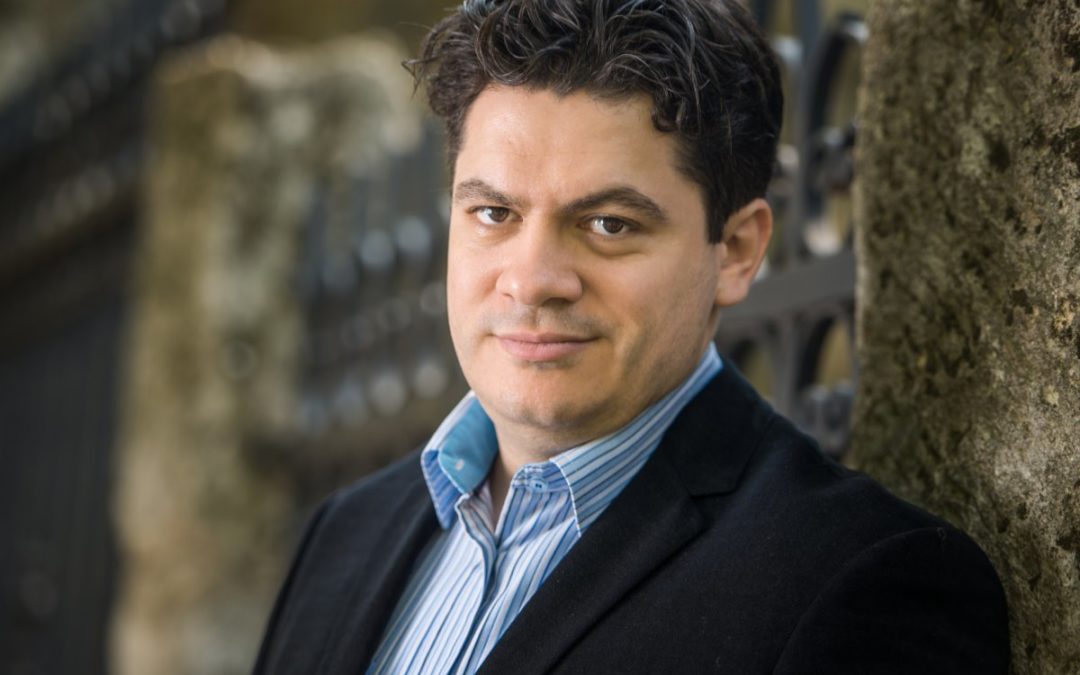OCTOBER 8, 2018 — BBC Symphony Orchestra | Barbican Hall, London, UK.
This evening at the Barbican was partly formed around the idea of musical animality – Beethoven’s propulsive overture to his ballet-score The Creatures of Prometheus opened the concert and Mason Bates’ 2015 Anthology of Fantastic Zoology, in its UK première, followed to close the first half, before Beethoven’s “Emperor” after the interval.
Cristian Măcelaru, with the BBC Symphony Orchestra, produced energy and drive throughout the evening to match the high-octane animality that flowed between these three pieces. Under Macelaru’s very physical direction, the opening overture burst into life straight away, ducking and weaving between the lyrical and brio sections, after the majestic opening chords had gracefully shifted the hall into gear. The Prometheus overture is pretty short and sweet, not a grand gesture such as the Egmont but more of an energetic mood-setter for the 16 pieces which follow. These we did not hear – instead, an expanded orchestra took to the stage, with added strings, harp, brass and percussion, to perform a different kind of dancing parade.
American Mason Bates is both a Julliard/Colombia-educated composer of grand-ideas classical work and the world-performing DJ Masonic, fusing electronic dance with ‘post-classical rave’ – a blend which I haven’t yet experienced but now desperately want to! His inventiveness and his desire for “something that engages” in the concert experience both burst through in his appropriately ‘fantastical’ symphonic panorama: Anthology of Fantastic Zoology. Over its eleven movements, which mostly bleed into one another, we are served palpable images of strange twilit forests and realms of half-hidden creatures: some large, some small, some quick-and-light and some (to borrow a word from Jabberwocky) “galumphing” back and forth. The work is based on Jorge Luis Borges’s Manual de zoología fantástica, elaborating on creatures from various mythological strands.
The first, flurrying figure, slithering down the winds and echoing out into an extended trill, sets the restless tone. The piece is really a concerto for orchestra, immediately brought out in Bates’ sharing and distribution of the spatial possibilities. Sprite, the first creature, is represented by a hopping of musical material between the violin stands, a racing series of figures played in a beautifully invertebrate manner under Măcelaru’s direction. The animals come and go, interspersed by very brief evocations of Twilight, Dusk, Night and Midnight. As the ears were bombarded by some truly remarkable orchestral wizardry, Măcelaru’s mastery and enthusiasm for the material were made fully clear, and such a fiercely rhythmical and complex piece seemed perfectly tailored for the BBC SO. From the bouncing clarinet passages in Nymphs to the extremely beautiful, expressly lyrical centre, Sirens (with violins played offstage slowly summoning the onstage ones) had the effect of different sets of brilliant effects building on and complementing each other, while always building toward a completed experience at the arrival of the explosive finale. All the animals seem to meet, fight or make love in the darkest point between night and dawn, and leaving the hall for the interval felt like returning to mundane reality.
Soloist Jeremy Denk and a significantly lighter orchestra then retook the stage for a performance Beethoven’s Piano Concerto no. 5 in E flat major. Denk’s playing, from the sweeping blur of his opening flourish to some shining trills, leant more toward the sensitive and gentle side in a work which treads back and forth between heroic barnstorming and hovering introspection. The second movement, in particular, held me tightly entranced as the orchestra and piano sang to each other hypnotically, and the first movement’s restrained, tinnier performance began to feel justified. Măcelaru and the orchestra hit a strong stride throughout the finale, although the perfect balance with Denk did not reappear again so well.
There were many more things to like than dislike in this concerto’s performance, and Măcelaru’s dancing emphases for the pounding final chords felt as though they deserved a more consistently passionate performance to match. Keeping audiences in the hall when contemporary music is on the programme is an obvious concern which requires keeping things balanced with classics. But as I am very glad to have learnt that Mason Bates has such an ambitious and exciting musical mind that one wonders whether we need him to share the bill with anyone.

